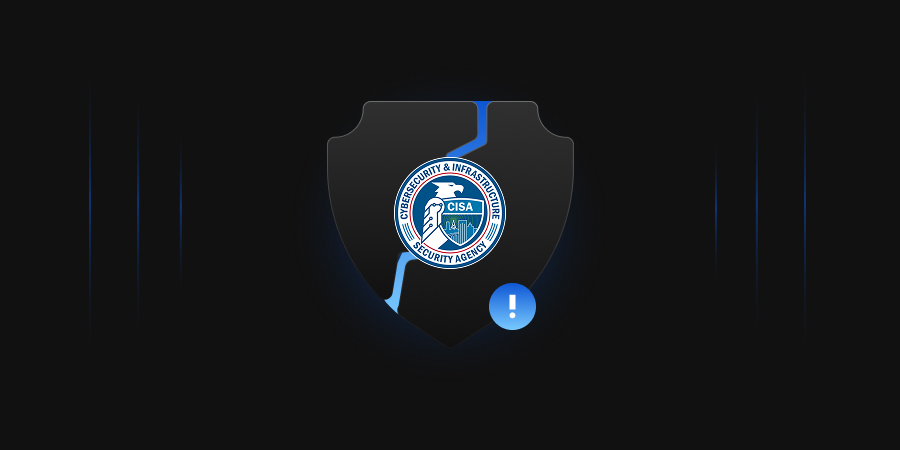In this digital era, seeing these new emerging attacks to steal one’s personal data becomes a serious matter of concern. That’s how the government came up with some laws and rules to protect individuals’ information and ensure that organizations handle that data responsibly. These regulations are designed to give individuals control over their personal data, govern how businesses collect, store, use, and share it, and provide legal recourse if the data is mishandled or misused.
The California Consumer Privacy Act (CCPA) and the General Data Protection Regulation (GDPR) are both data privacy regulations that help organizations protect their data from being misused by any third party or attacker. Both regulations are almost similar yet have distinct scopes and requirements, which we’ll discover in the upcoming sections of this article. From a regional aspect, CCPA protects California residents while GDPR protects all EU residents.
California voted and signed the California Consumer Privacy Act in June 2018, which came into effect on January 1, 2020. California is no stranger to privacy laws. The state of California has introduced privacy laws such as the California Shine the Light Law, California Invasion of Privacy Act, California Online Privacy Protection Act, California Anti-Phishing Act of 2005, Privacy Rights for California Minors in the Digital World, and the California Electronic Communications Privacy Act.
However, the California Consumer Privacy Act is harsher than any of the previous laws enacted by the state of California, rivaling the most recent General Data Protection Regulation of the EU. The CCPA does not cover all that is required by the GDPR, but creates the strictest privacy laws the United States has ever seen.
Personal information of individuals is at an all-time high risk. The misuse of personal data and privacy rights is now a primary concern worldwide. The California Consumer Privacy Act introduces never-before-seen consumer privacy regulations in America.
The legislation aims to protect personal information by creating a broad definition: Personal Information (PI) is “information that identifies, relates to, describes, and is capable of being associated with, or could reasonably be linked, directly or indirectly, with a particular consumer or household,” stated by the California Consumer Privacy Act. The legislation addresses organizations using, compiling, and distributing personal information.
By doing so, the act aims to protect California consumers by enforcing the protection of personal information and forcing organizations to respect the privacy of citizens. The organizations will have to comply with the CCPA for those operating in California or doing business within California if they fall under one of the three categories:
- Annual gross revenue is greater than $25 million
- Buy, receive, or sell PI of 50,000 or more consumers, households, or devices, or
- 50 percent or more of annual revenue by selling to California-based consumers’ PI.
If these regulations are not followed, fines will be imposed by the Attorneys General up to $7,500 per international violation, and lawsuits can result in $100-750 per consumer per incident.
Rights in CCPA
The California Consumer Privacy Act aims for the consumer to retain ownership, power, and security of their personal information if you are a citizen of the state of California by establishing significant rights to consumers, such as:
-
Right to Know
The right to know what and where personal information is being collected, sold, and disclosed about them. Consumers have the right to know what personal information is being collected about them.
-
Right to Opt-Out
The ability to deny the sale of personal information. Consumers can opt-out of the sale of their personal data.
-
Right to Non-Discrimination
The right to have equal service and price, if one decides to exercise their privacy rights. Businesses cannot discriminate against consumers for exercising their CCPA rights.
-
Right to Delete
The right to be able to have personal information deleted.Consumers can request businesses to delete their personal information from records which has been collected from consumers.
The original CCPA surely made a landmark with its privacy protection rights for the consumer; however, now the consumers have this responsibility to remain aware of the privacy decisions they make while doing any business, and hence, it somehow backfired on the existing model. That’s how Proposition 24 came into light in November 2020, which was soon approved by the voters and has been in effect since January 1, 2023. It includes two new rights:
-
Right to Correct
Consumers have the right to correct any personal misinformation that businesses have regarding them. Inaccurate information can have negative consequences for any consumer; that’s why it’s important to ensure your personal information credibility within any business.
-
Right to Limit
Consumers have the right to limit the use and disclosure of sensitive personal information collected about them. Suppose if a consumer doesn’t want to share his personal contact number, then this right provides him the flexibility to do so.
Rights in GDPR
-
Limitation of purpose, data, and storage
Consumers can request to collect only necessary information and discard any personal information after processing is complete.
-
Right to Erasure
Similar to CCPA’s Right to Delete, where consumer can request to delete their personal data.
-
Right to Object
Consumers can question or object regarding the collection of their personal information from businesses.
-
Right to Restriction
Consumers can request to restrict their data or personal information being collected under certain conditions.
Comparison between CCPA and GDPR
While the CCPA and the GDPR are similar, they have a fair number of differences in regulations. In the table below, a comparison will be made showing both similarities and differences between the two policies. For organizations that comply with GDPR, you will be forced to make further provisions to comply with the CCPA as well.
| Major Requirements | California Consumer Privacy Act | General Protection Data Regulation |
|---|---|---|
| Encrypted/Redacted Personal Data | ✅ | ✅ |
| Privacy by Design | ❎ | ✅ |
| Compliance by all businesses collecting/personal data | ❎ | ✅ |
| Limit sale of Personal Data | ✅ | ❎ |
| Reporting of Data Breaches | ❎ | ✅ |
| Options for Minors | ✅ | ✅ |
| Policies for Cookies | ❎ | ✅ |
| Processing Bans | ❎ | ✅ |
| Equal service and price, if exercising their privacy rights. | ✅ | ❎ |
How Can Encryption Consulting Help?
At Encryption Consulting, our Encryption Audit Service is designed to ensure your data security is rock solid. Our organization specializes in encryption services, offering essential tools for businesses to comply with data privacy regulations such as the CCPA and GDPR. We dive deep into your current encryption mechanisms, pinpointing vulnerabilities and offering practical recommendations to boost your encryption strategies. By aligning our audits with industry standards and regulatory requirements, we make sure your encryption practices are both effective and compliant.
Conclusion
CCPA and GDPR are both data privacy regulations introduced by governments to give more power to consumers, allowing them to protect their personal information from being misused by businesses. Consumers have various rights under these regulations, such as the right to access their data, the right to correct inaccuracies, the right to request deletion, and the right to opt out of the sale or processing of their personal information.
These policies help consumers take control of their data, ensuring that businesses handle it transparently and responsibly. By empowering individuals, CCPA and GDPR also promote trust and accountability in the digital economy, creating a safer environment for data sharing while minimizing risks such as identity theft, unauthorized profiling, or data breaches.




